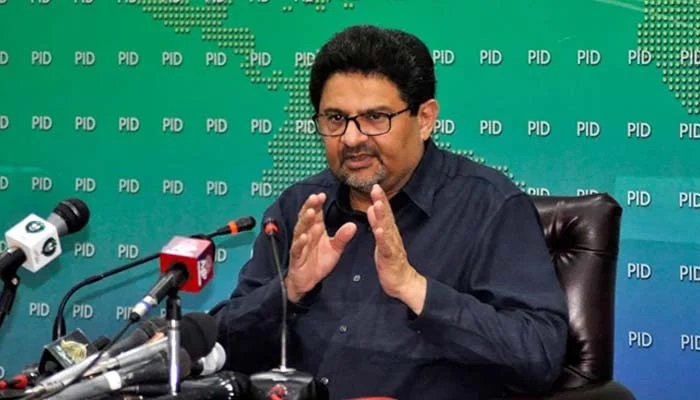WASHINGTON: The International Monetary Fund (IMF) has said that it’s still too early to determine whether ongoing discussions with
ISLAMABAD: In his press conference alongside Finance Minister Miftah Ismail, Defence Minister Khawaja Asif called for a complete end to ‘executive allowance’ recently given to top government employees and other similar lavish lifestyles on public expense, whereas the prime minister in a cabinet meeting expressed concern over the local currency’s record depreciation against the dollar.
Separately, Energy Minister Khurram Dastgir asserted that the country’s petroleum product reserves were at a “record level”.
Conceding that ongoing policy measures by the government coupled with external factors would push a lot of middle-class people below the poverty line, Defence Minister Khawaja Asif on Thursday called for a complete end to ‘executive allowance’ recently given to top government employees and other similar lavish lifestyles on public expense.
“The permanent government, I mean the bureaucracy and others, would have to jointly share the burden to ensure that it is felt by the common man that they are not paying the price alone but shared by the entire nation,” Mr Asif told reporters.
He attributed the rupee’s downfall which has plunged to 227 to the dollar from 204.85 on June 30 — mainly to US currency’s appreciation against other currencies, saying that the dollar had touched a 20-year high.
He said the size of Pakistan’s government should be reduced as much as possible in given circumstances but noted that it was too large because a lot of things the private sector should be doing was still in government hands. He also stressed the need for a change in habit patterns and said business should be restricted to daytime only.
The defence minister, who is part of a cabinet committee on importing coal from Afghanistan and engagement with friendly countries for financial support, said the government had already cleared amendments in laws to facilitate government-to-government transactions and legislation would be completed in a few days.
He said the Middle Eastern friends had shown interest in investment in listed companies while their investment companies and sovereign funds were keen in many other companies which are in the privatisation list for decades.
Responding to a question, Mr Asif said a delegation had returned from Kabul and arrangements would now be made to increase coal imports for power plants.
Speaking on the occasion, Finance Minister Miftah Ismail said inflows from friendly countries could not flow so quickly and such transactions took time to materialise.
However, he claimed that the currency market was now under control after the coalition partners announced to complete the remaining constitutional term until June next year. He said he would immediately announce if any of the foreign transactions materialise.
He said imports had been brought under control because of hoarding to petroleum products that had been imported when the government was providing heavy subsidies and as result Pakistan had over 30 days of petrol, about two months for diesel and furnace oil.
On the other hand, consumption had also declined because of higher prices. “We will spend our political capital to protect the country and have taken difficult decisions and there is no regret. If we have to do it again, we will do it,” he said.
Mr Ismail said the economy was on the right track and all indicators, apart from the exchange rate, were positive. He said the SBP had also taken steps to discourage imports. Responding to a question, he said the SBP governor would be appointed next week and its board of directors would be notified anytime.
Meanwhile, Energy Minister Khurram Dastgir asserted on Thursday that the PML-N-led coalition government’s commitment to stabilise the economy and prevent the effects of an “international energy crisis” from manifesting here was clear as petroleum product reserves were at a “record level”.
Addressing a press conference in Islamabad alongside State Minister for Petroleum Musadik Malik, Mr Dastgir also drew comparisons between Pakistan and “another country in the region that is facing economic difficulties”, apparently referring to Sri Lanka, which has been reeling from economic crises for months and the president had to step down amid widespread protests.
The biggest indication of economic turmoil in the country was that it ran out of petroleum products, he said. “People had to stand in queues for four days to get petrol. But here, we have diesel stocks that will last for two months and those of petrol for 34 days.”
‘Import bill significantly reduced’
Musadik Malik told reporters that imports of petroleum products was witnessing a gradual decline, as the country’s petrol consumption had dropped 9pc to 704,000 tonnes in June from around 778,000 tonnes in the same month a year ago. Similarly, there was an 8pc to 9pc decline in the sale of diesel oil, which is used in heavy vehicles and agriculture machinery.
He said his ministry was managing the matters on a daily basis and were not allowing any unnecessary imports. He also emphasised that there was no risk of a shortage of petroleum products amid “record-high” petrol and diesel reserves.
You May Also Like
JABALIA: Israeli forces battled Hamas fighters in the narrow alleyways of Jabalia in northern Gaza on Friday in some of the fiercest
KURRAM: Clashes on the border between Pakistan and Afghanistan escalated on Friday, prompting large-scale displacement from






